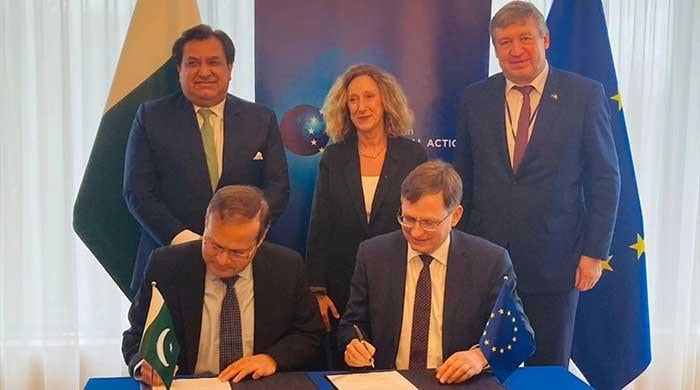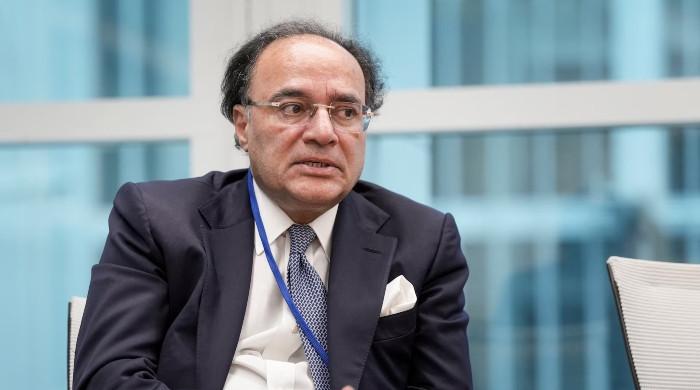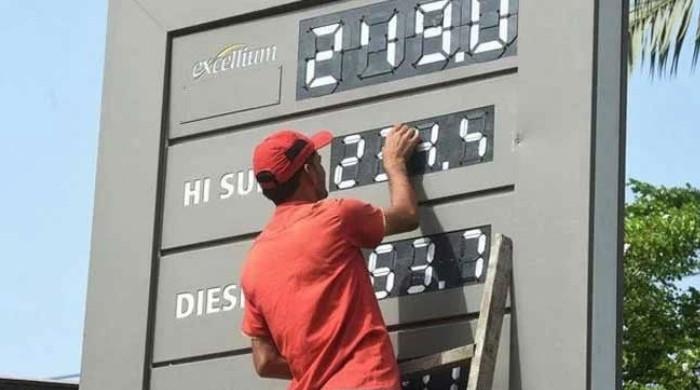Swedish company on verge of making eco-friendly steel with 95% CO2 emission cut
H2 Green Steel's ambitious project signal paradigm shift in industry often deemed a "true bad boy" in environmental terms
February 21, 2024

In a groundbreaking move towards a greener future, H2 Green Steel, a Swedish company, is on the verge of constructing the world's first commercial-scale steel mill with the potential to reduce CO2 emissions by a staggering 95 percent, Newsweek revealed.
The key lies in an innovative process that swaps traditional carbon-heavy coke for hydrogen, emitting only steam in the steelmaking process. This significant stride towards sustainable steel production comes as the industry grapples with its notorious contribution of about 7 percent to global CO2 emissions.
Lars Lundström, Head of Product Sustainability at H2 Green Steel, shared insights into the revolutionary process, stating, "In our process, we exchange the coke for hydrogen." The shift not only addresses the environmental impact but also aligns with the global pursuit of reducing carbon emissions. The company's facility, strategically located in northern Sweden, harnesses carbon-free electricity from abundant water and hydropower, setting the stage for a transformation in the steel industry.
However, the journey towards green steel involves more than technological innovation. To secure funding for such endeavors, companies like H2 Green Steel must navigate a delicate balance of market demand and investor confidence. Jen Carson, leading Climate Group's decarbonisation efforts, underlined the need for clear standards, stating, "A big part of our work is to provide clear, consistent, and credible definitions in terms of tons of carbon per ton of steel."
Recognising the significance of green steel, major companies including Jindal Steel & Power, Mercedes-Benz, and Microsoft are actively participating in initiatives like the Sustainable Steel Buyers Platform. With a commitment to purchase 2 million tons of near-zero-emissions steel, these industry leaders are driving demand for sustainable products. Microsoft Climate Innovation Fund's investment in H2 Green Steel reflects a strategic alignment with the transition towards environmentally conscious steel production.
Leading automaker Volvo has signed a long-term supply contract with H2 Green Steel, underscoring the pivotal role steel plays in their sustainability goals. Anders Kärrberg, Volvo's head of global sustainability, acknowledged the challenges but expressed enthusiasm, stating, "Steel is 50 percent of the weight of a car." As the automotive industry seeks alternatives, the prospect of nearly carbon-free steel aligns with Volvo's ambitious targets for electric vehicles and climate neutrality.
While H2 Green Steel pioneers hydrogen-based transformation, not every steelmaker has access to such abundant green power. LanzaTech, an Illinois-based company, offers an alternative approach using Carbon Capture Utilisation and Storage (CCUS). By utilising bacteria to convert captured CO2 and industrial gases into ethanol, LanzaTech's method not only reduces emissions but also creates valuable products, potentially reshaping the chemical supply chain.
As the world's largest steelmaker outside of China, ArcelorMittal is embracing green steel with a unique twist – gas fermentation. James Streater, head of sustainable development for ArcelorMittal, highlighted their ambitions to be a major green steel producer. However, challenges persist, especially in cost considerations.
Streater stressed the importance of profitability throughout the supply chain, recognising that the success of green steel hinges on economic viability.









